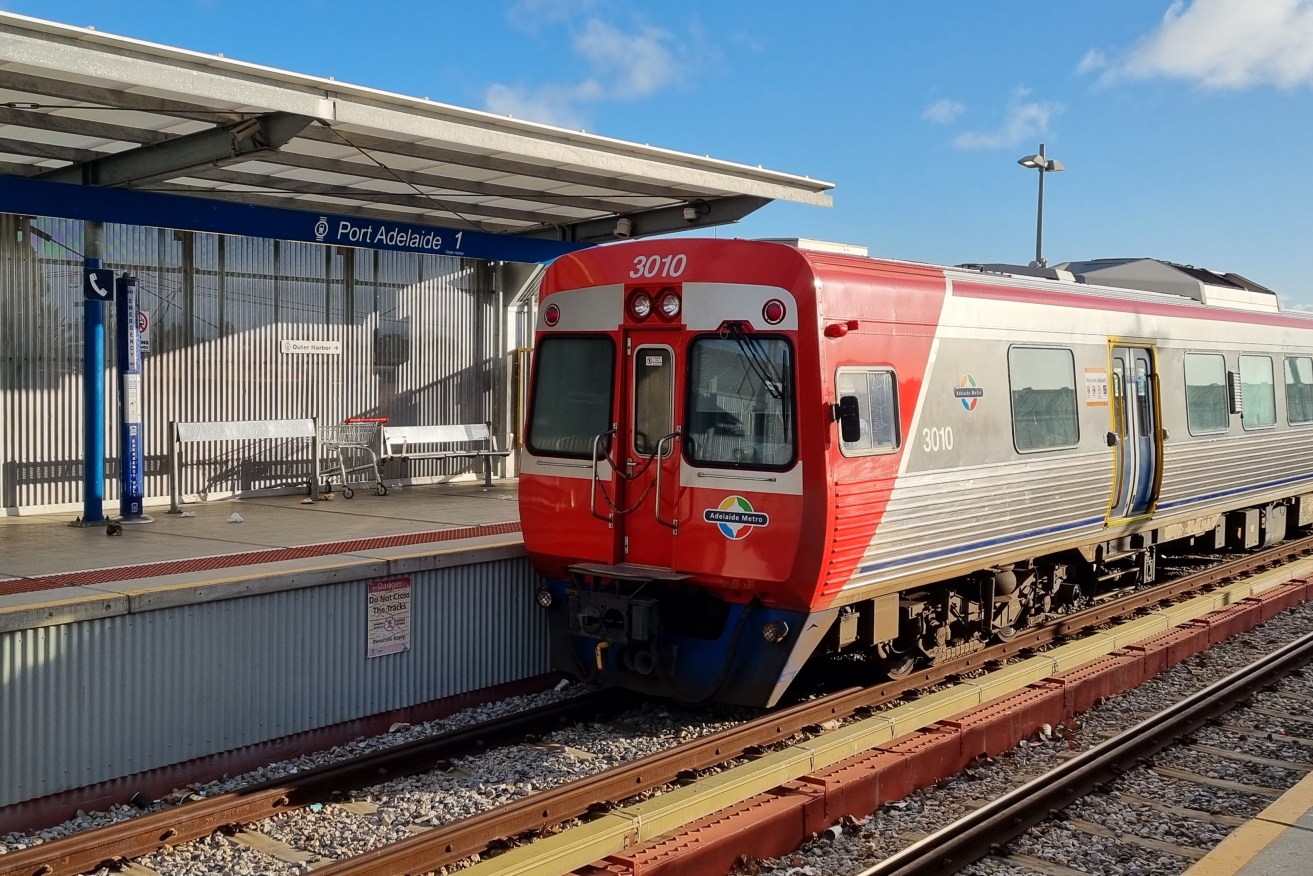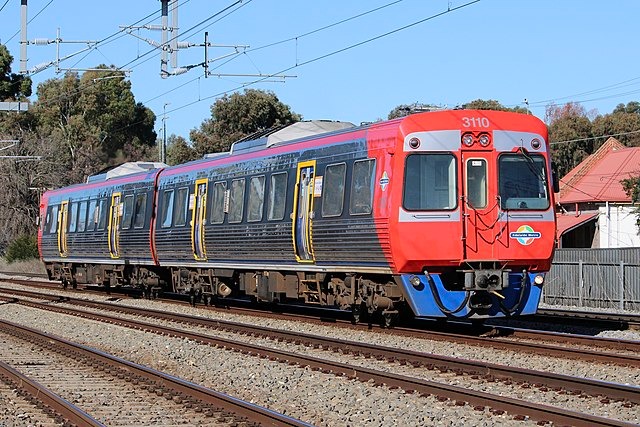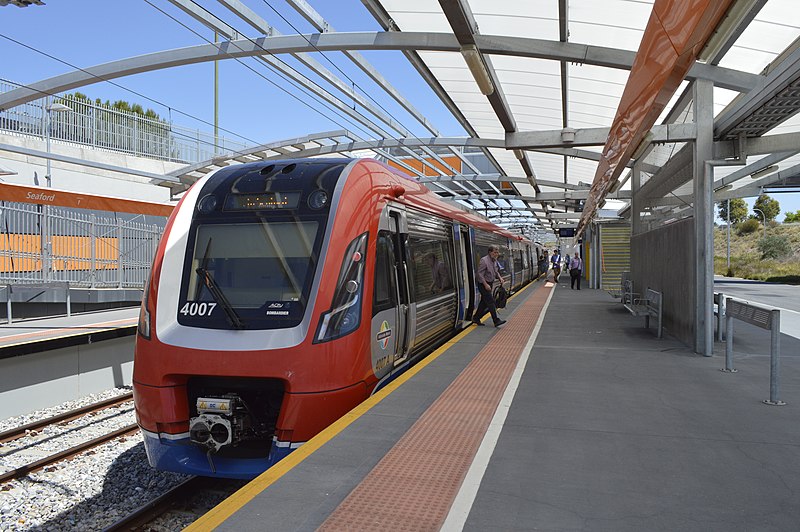Journey to Adelaide zero-emission trains leaves station
A global transport consultancy has been hired to investigate replacing Adelaide’s ageing diesel passenger trains with a zero-emissions fleet, with work also underway to shift Adelaide’s bus network to net zero by 2050.


An Adelaide Metro diesel railcar arrives at Port Adelaide station. Photo: Thomas Kelsall/InDaily
Ricardo Rail Pty Ltd, a subsidiary of British multinational engineering consultancy Ricardo PLC, has won a Transport Department tender to produce a feasibility study examining how to transition Adelaide Metro’s remaining diesel trains to zero-emissions technology.
The study is expected to consider options such as battery-electric and hydrogen fuel cell powered trains to operate on the Belair, Outer Harbor and Grange lines – the three unelectrified lines remaining in the Adelaide Metro network.
The investigations come as Adelaide’s diesel passenger trains, built between 1987 and 1996, are fast approaching the end of their service life.
The Transport Department’s business case tender released in December stated that the 70 diesel railcars currently operating on the Adelaide Metro network will be out of action within 10 years “without additional end of life investment”.

Adelaide’s diesel rail cars are reaching the end of the line, according to the Transport Department. Photo: Wikimedia Commons
“The current Outer Harbor, Grange and Belair line signalling systems are approaching end-of-service life and will require replacement irrespective of any changes to rollingstock and power supply,” the tender stated.
“The Grange line will also require a track infrastructure upgrade in the short [to] medium term.”
Three of Adelaide’s six passenger train lines – Seaford, Flinders and Gawler – are electrified.
The Seaford line was fully electrified in 2014, followed by the Flinders extension which opened in 2020.
The Gawler line was opened as a fully electrified line in June 2022 after numerous cost blowouts and delays.
The cost of electrifying the northern suburbs route eventually reached more than $842m and commuters in the northern suburbs were forced to catch substitute buses for nearly 18 months.
Electrifying the Outer Harbor, Grange and Belair lines appears to be unlikely given the costs and delays associated with previous electrification projects, however, the Transport Department has previously said all options will be considered as part of the feasibility study.

An Adelaide Metro electric train running along the Seaford line. Photo: Wikimedia Commons
The Transport Department has also awarded contracts to consultants GHD and Evenergi to develop a business case and transition plan to transform Adelaide Metro’s bus fleet to zero-emission by 2050.
Transport Minister Tom Koutsantonis said today: “The awarding of these contracts represents a great opportunity to assess the best options available globally and build a case for how these technologies can be best applied in South Australia, particularly as we transition away from diesel-powered services and explore other feasible possibilities.
“As a renewable energy leader, the State Government is committed to transitioning to a zero-emissions public transport system to support our target of net zero emissions by 2050.
“By continuing to decarbonise our public transport network, we’re not only delivering a more sustainable future, but improving the experience for all our customers – with more efficient, quieter and safer services.”
Ricardo PLC has offices across the world including two in Adelaide and others in Melbourne, Sydney, Canberra, Perth and Brisbane.
According to the company’s website, it has worked as a “shadow operator” of the Sydney Metro network since 2020 and supported other major transport projects in the Asia-Pacific including Taiwan’s high speed rail network and Bangkok’s metro system.
Both the train and bus feasibility studies are expected to be completed by the end of the month.




